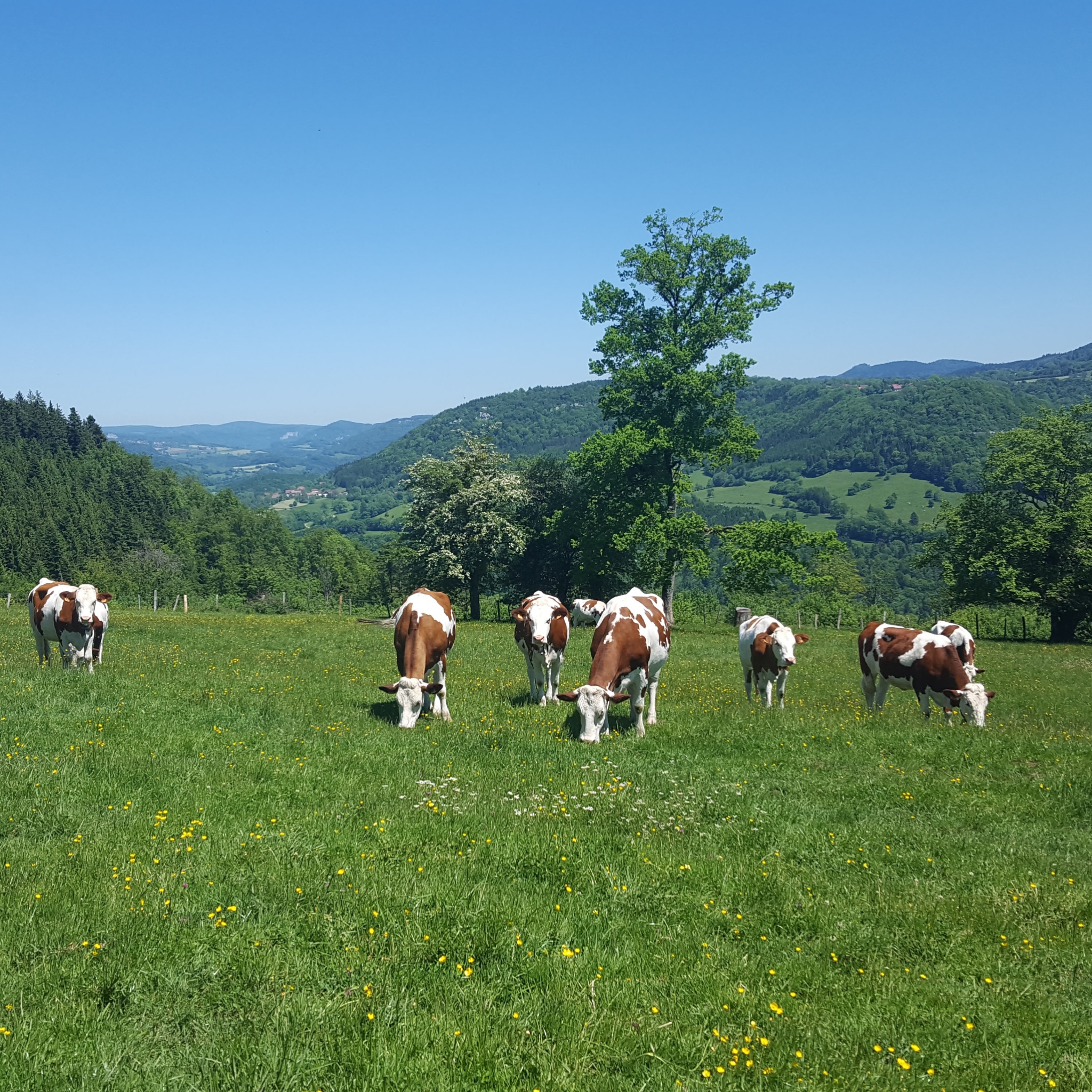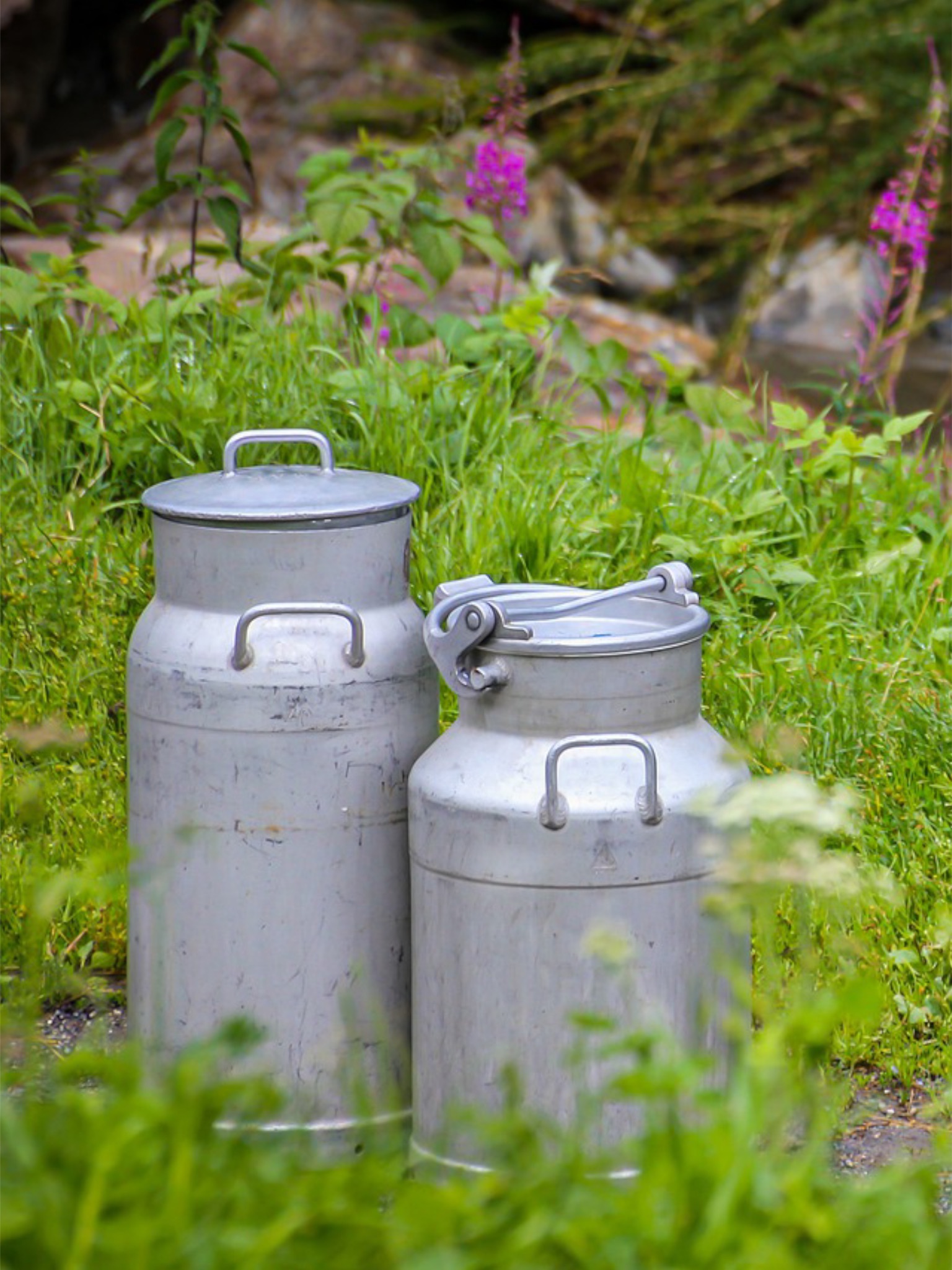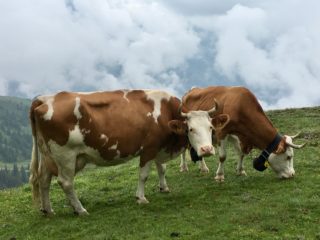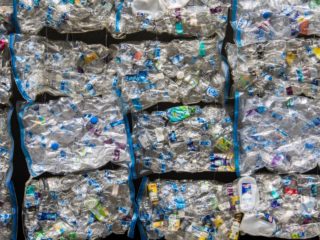The Big Meat and Dairy industries are copycats — copycats of Big Oil, that is. (Big Oil, for their part, copied from Big Tobacco.) Fueled by extraordinary wealth, these industries have for years denied, deflected, and obfuscated the true impact of their actions on human and planetary health.
The tobacco industry’s tactics have been exposed and now the fossil fuel industry is under scrutiny, but the Big Meat and Dairy industries have puttered along with comparatively little oversight. Why?
Big Meat and Dairy: Stealth Climate Culprits

It’s easy to present a plausible case about the connection between fossil fuels and climate change, tacking on adjectives like “dirty,” “polluted,” or “environmentally harmful” to conjured images of smokestacks, oil rigs, and smelly refineries. These carbon-intensive industries are, by definition, emitters of greenhouse gases, and the environmental destruction from their activities is readily visible throughout the world.
To be sure, the fossil fuel industry has spent enormous sums of money to greenwash its activities in an attempt to deny a strong connection, but most of us aren’t surprised by the industry’s impact on climate change.
Making a connection between food and climate change is more difficult. How do your burger and milkshake contribute to climate change? Is eating a steak once a week really that bad?
The more important questions to ask are, how does this food arrive on your plate? What steps were taken to produce, distribute, sell and dispose of it all?
When you delve deeper into the environmental impacts of each step from animal to plate, it is all too clear how the emissions from food production — in particular, meat and dairy — are significant, and alarmingly so. Global emissions from livestock represent 14.5% of total greenhouse gas emissions and cattle represent a sizable share – about 62% – of the livestock sector’s emissions.
The reason that animal-based products pack the biggest emissions punch is that their production processes are incredibly resource-intensive, requiring vast tracts of land, water, and other natural resources. Beef production is the worst offender, devouring most of these resources: Per calorie, beef depends on more land and emissions in its production than most other foods.
Indeed, a recent study asserts that “the world’s biggest meat and dairy companies could surpass ExxonMobil, Shell, and BP as the world’s biggest climate polluters within the next few decades.” And former Energy Secretary Steven Chu maintains that “agriculture and land-use generate more greenhouse gas emissions than power generation,” adding that “If cattle and dairy cows were a country, they would have more greenhouse gas emissions than the entire [European Union].”
Cultural Resistance

On top of our hazy understanding of how meat and dairy contribute to climate change, there’s cultural resistance to challenging some of our most cherished American symbols. Gathering with friends and family to enjoy grilled burgers and steak is about as American as, well, apple pie. It’s also been ingrained in us that dairy isn’t just good for your health, it’s an essential part of a balanced diet. Who wasn’t told from an early age to “drink your milk” to ensure strong bones and teeth?
It’s perfectly acceptable to decry the prevarications of Big Oil. (Unless, of course, you’re an executive or major investor. This oil executive’s response to a North Face anti-oil move is particularly amusing.) Despite humanity’s inextricable dependence on fossil fuels, there’s still a certain abstraction about the extractive industries that deems it permissible to attack from afar, as if we’re not part of “all that mess.”
Taking action to reduce meat and dairy production and consumption is altogether un-American. Even tentative suggestions to reduce our meat and dairy intake have been met with fierce resistance as an infringement on individual freedoms. Don’t take my burgers!
Little Accountability, a Lot of Foot-Dragging
Big Meat and Dairy are all too happy to leave us in the dark. In fact, these industries go to great lengths to resist and deflect.
Big Meat and Dairy have also assumed the mantle of unbiased nutritional expertise, inserting themselves into the formation of USDA dietary guidelines. The breadth of corporate influence on the formation of our nation’s food policy is worth a deeper read (here too), but the more troubling aspect of the food industry’s infiltration into policymaking is that it’s a powerful public platform upon which private companies can market their products and craft a corporate image that suits their needs.
This shrouded relationship between public and private has been an effective tool for the food industry to cover its tracks as one of the main climate culprits while maintaining an image of impartial respectability.
What are the implications of all this? It’s business as usual with little to no accountability for their contribution to climate change by Big Meat and Dairy. At best, these industries pay lip service to climate action. A new study in Climatic Change shows that of the world’s 35 largest meat and dairy companies, only fourteen companies have announced some form of emission reduction goals, and only four have made a stated commitment to net-zero emissions by 2050. All these commitments are voluntary, with little to no reporting.
At worst, these industries, employing the same playbook as Big Oil, deliberately undermine the reality of a climate-food link. Churning out hundreds of millions of dollars, the top Big Meat and Dairy companies actively work to prevent action on climate change. According to the study in Climatic Change, these companies have lobbied Congress and the EPA on climate-related issues, blocked relevant climate legislation, and funded research to minimize the connection between animal agriculture and climate change.
The practice of rotating lobbyists from the private to public sector is an additional and powerful tool for furthering and protecting the industry business model. During the Trump administration, for example, these “revolvers” included Sonny Perdue, the Secretary of Agriculture, and Scott Pruitt, head of the EPA, both staunch climate skeptics with close connections to the agribusiness lobby. Tom Vilsack, former head of the US Dairy Export Council and former Ag Secretary under Obama, is now Biden’s Ag Secretary. While not a climate skeptic, it remains to be seen whether he can distance himself from the industry’s reluctance to take climate action.
Where Do We Go From Here?
The solution, of course, isn’t a ban on meat and dairy, but we must rethink how we produce our animal-based products and employ innovative ideas to minimize the climate impact of agricultural activities.
Just as we’re beginning to hold fossil fuel producers accountable for their impact on the climate we must do the same with the food industry, in particular, the chief emissions culprits. Climate activists can’t ignore or avoid the climate-food link and must incorporate calls for food reform into their climate action agendas.
As consumers, we can do our part by moving toward a more plant-based diet. Legislative action is also necessary, and we can hold our elected officials accountable by demanding substantive reform.









